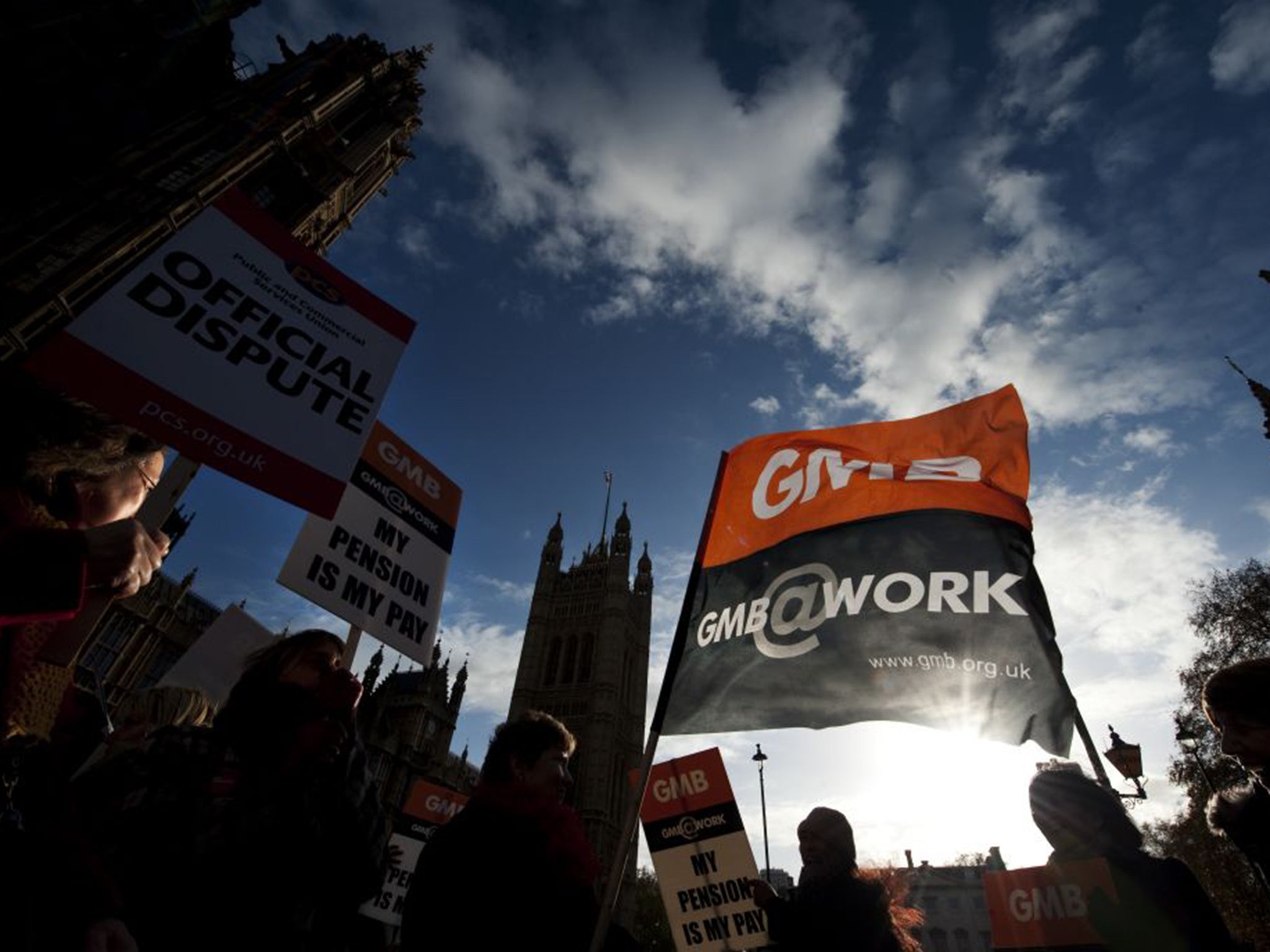Trade union bill will cut funding to the Labour Party, says GMB general secretary Sir Paul Kenny
The threat to the party’s income comes as the Tories strengthen their financial position

Labour will lose more than £40m in every electoral cycle as a result of the trade union bill, which Sir Paul Kenny has warned will plunge the party into “financial crisis”.
Sir Paul, the outgoing GMB general secretary, chairs Unions Together, which acts as a link between trade unions and Labour. He said that the reforms, which curb union funding to Labour, would ultimately result in the party getting its revenge because Labour, when it returns to government, would block big business donations to the Conservative Party.
He said: “Since the 1940s, how politics is funded in the UK has been subject to a bi-partisan approach. Unilaterally the Tories have torn up that approach and if the trade union bill becomes law, it will trigger a financial crisis for the Labour Party affecting its structure, staffing, and ability to fight elections. The Tory party too will pay a heavy price in the long run for this. In due course big business and the multi-millionaire elite will be prevented from funding the Tory Party.”
The trade union bill reaches the floor of the House of Lords tomorrow and political funding reforms can only be blocked with support from the Liberal Democrats and independent crossbenchers. It is understood that Lord Tyler, a former Lib Dem MP, does intend to table an amendment proposing to have the political funding issue separately examined by a select committee.
Labour considers the bill to be a cynical attack on its finances so that it can never again fight a general election on even terms. The Tories are already significantly better funded – many Labour activists complained that they could not compete with their rivals’ financial firepower at last year’s election. The bill requires members of Labour-affiliated unions to opt in to paying a levy to the party. At the moment a unionist can opt out, but the change in psychology is significant enough to cost Labour more than £5m a year, according to union estimates.
Unions Together thinks the changes will result in a £10m shortfall of funds in a general election year, while the Conservatives have also reduced public funds to support opposition parties in Parliament known as “Short money”.
Altogether, this amounts to a loss of more than £40m every five years, which is about a quarter of Labour’s funding. A union source gave a warning that the changes could wreck Labour’s finances as early as this summer: “This could be law within a few weeks, followed by a three-month transitional period. That could mean Labour is in financial crisis by the third or fourth quarter of this year.”
Answers to parliamentary questions raised by Labour show that ministers did not ask civil servants to assess the likely affect on party finances that the reforms would cause. Baroness Neville-Rolfe, a junior business minister, said: “The trade union Bill is introducing a greater level of transparency into union activities by requiring union members to make an active decision to contribute to a union’s political fund. If union members want a political fund they are perfectly free to contribute to one, so, this will not necessarily lead to a reduction in the funds available.”
Labour’s financial problems come as the Conservatives prepare to improve their own, already strong, finances by overhauling the party’s organisational structure.
Lord Feldman, the party chairman, and Robert Halfon, the minister without portfolio, will publish a post-election review of the Conservative Party this month. A senior party source said this will look at encouraging more neighbouring local associations to pool their resources, which could involve selling properties and lower running costs.
The review will also propose that Conservative HQ hold a central membership base which would then be made available to local associations. Some MPs fear both measures, if not properly implemented, could centralise power at a time when the Government is pushing for greater devolution of political power.
A senior backbencher said the moves were “fraught with danger”, with Conservative HQ potentially demanding changes that cover a whole county cover from just one office. Although that would be inexpensive, it would also be difficult for activists to get together and plot campaigns.
Subscribe to Independent Premium to bookmark this article
Want to bookmark your favourite articles and stories to read or reference later? Start your Independent Premium subscription today.

Join our commenting forum
Join thought-provoking conversations, follow other Independent readers and see their replies